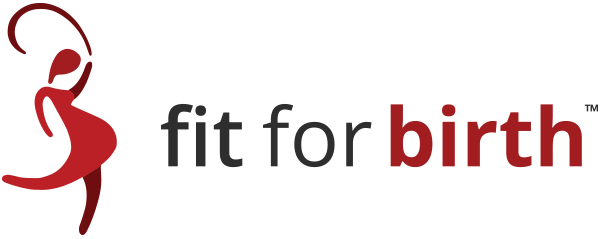Getting pregnant in today’s world can be tougher than ever. Stressful lifestyle factors are making it more difficult to conceive than at any point in history. A few common daily habits may work against a healthy conception and there are a handful of lifestyle factors to be considered before taking a trip to the fertility doctor.
Listed here are ten facts that can be used to reduce the effects of stress, build a healthier body, and conceive quickly and naturally.
Fact # 1: Try not to worry
Easier said than done, we know. But relaxing and remaining stress-free can be the most powerful aid in a successful conception. Women who worry about the conception process are less likely to conceive, says a study published by the American Society for Reproductive Medicine. Do your best to have a positive mental outlook.
Fact #2: Avoid Artificial Sweeteners
Dr. Louis Elsas, director of genetics at Emory University School of Medicine, recommends that “pregnant women avoid aspartame sweeteners,” like Equal and NutraSweet. These sweeteners can “interfere with the growth of the fetus brain” and cause “decreased growth rate in newborns” according to Mercola.com This holistic health website says that one of the toxic side effects of Splenda is aborted pregnancy.
For a zero-calorie option, pure stevia, without additional chemicals may the best choice.
Fact # 3: Avoid Caffeine
Drinking more than 300 milligrams of caffeine can reduce fertility by 27 percent, according to the American Pregnancy Association. A 16-ounce (grande) cup of Starbucks coffee can have from 259 milligrams to 400 milligrams of caffeine.
Too much caffeine is associated with causing spontaneous abortions, reports the New England Journal of Medicine in November 1999, a study that still holds today. Considering such extreme potential side effects of caffeine, it may be a good idea to avoid caffeine altogether if its an option for you.
Fact #4: Avoid Pesticides
Its difficult to research the effects of pesticides on human reproduction, but many experts, such as Carol Simontacchi, suspect that pesticides disrupt the hormonal and nervous system of developing babies. She also points out, in her book, “The Crazy Makers,” that the purpose of a pesticide is to either kill insects and pests or make them sterile, which, of course, is counterproductive.
Fact #5: Avoid Soy
Avoiding soy foods may help your chances of quick and healthy reproduction. Soy’s phytoestrogens are potent hormonal disruptors, says Sally Fallon in her book “Nourishing Traditions.”
In 2006, Medical News Today reports, “there is a growing body of literature demonstrating the potentially adverse consequences [of soy] on the reproductive system.”
Fact #6: Remove Household Toxins
Many household products contain endocrine disruptors, which can cause human reproductive risks, according to the U.S. Environmental Protection Agency (EPA) and the Environmental Working Group in 2003. The EPA assessment spoke about PFOA, a chemical found in Teflon cookware, stain repellents, food packaging, and cosmetics. Bisphenol A, an endocrine disruptor is present in plastic containers, plastic bottles, and plastic wrap. Phthalates, another class of endocrine disruptors, are found in shampoo, deodorants, fragrances, hair spray, and nail polish.
If you put these products on your skin, eat foods that come in contact with these products, or simply breathe any of these products, they enter your body. As an alternative, you can purchase your household cleaners and toiletries at health food stores, use glass containers, and cook with Teflon-free cookware.
Fact #7: Unprocessed Foods for Her
In The Fertility Diet, Harvard Researchers suggest eating unprocessed foods such as vegetables, beans, nuts, and seeds, and avoiding trans fats and skim milk to increase a woman’s chances of conception. It seems that processed foods such as sugar and flour can reduce your chances of becoming pregnant. We know that choosing unprocessed foods provides quality building blocks for everything your body produces, including reproductive hormones. Unprocessed foods include fresh vegetables, fruits, hormone-free meats, fresh fish, eggs, whole grains, unpasteurized dairy, olive oil, and coconut oil.
Fact #8: Unprocessed Foods for Him
In her article, “Eat to Get Pregnant,” nutritionist Victoria Greaves says conception may also depend upon what your spouse eats as well. She mentions several nutrients that can increase sperm count, mobility, and the ability to penetrate the egg. They include zinc, B12, selenium, vitamin E, and essential fatty acids. Similar to The Fertility Diet, the foods she suggests for Dad are unprocessed and organic, including shellfish, egg yolks, nuts, seeds, whole grains, cheese, fruits, vegetables, and meats. She also suggests drinking plenty of water and eating healthy fats.
Fact #9: Get Regular Sleep and Sunshine
Good circadian rhythms can help your chances of conception. Mary Kittel and Dr. Deborah Metzger, authors of Stay Fertile Longer, write that lack of sleep can lead to hormone imbalance and menstrual irregularity, factors that can “delay the time it takes to conceive.”
They recommended keeping sleep and wake times consistent seven days of the week, getting an hour of sunshine every day, and dimming lights as the evening arrives.
Fact #10: Daily Movement
Daily movement can help conception. Moderate exercise has been shown to improve just about every bodily function, including reproduction, according to Dr. Jeffrey Keenan of the Southeastern Center for Fertility and Reproductive Surgery. Obese women have a lower chance of becoming pregnant naturally, according to the Academic Medical Center in Amsterdam. One of the ways to avoid obesity is to exercise.
For more information on reducing household toxins, click here!
James Goodlatte is a Holistic Health Coach and founder of Fit For Birth. His passion is to heal families by inspiring the use of natural methods and by building a team of fitness professionals to reduce infertility, avoid mechanized childbirth, and lower chronic disease in our infants. Fit For Birth provides continuing education courses to birth and fitness professionals.
Like us on facebook.com/GetFitForBirth
Follow us on Instagram @FitForBirth
